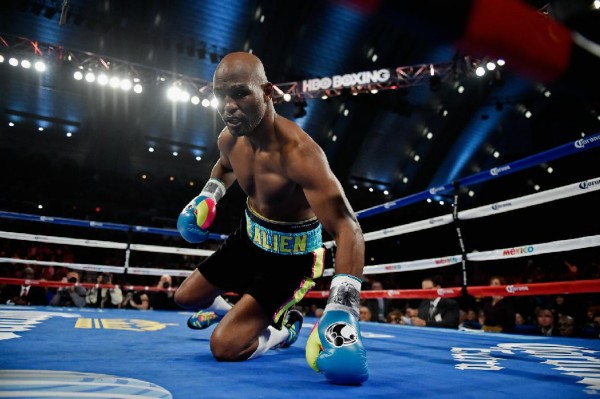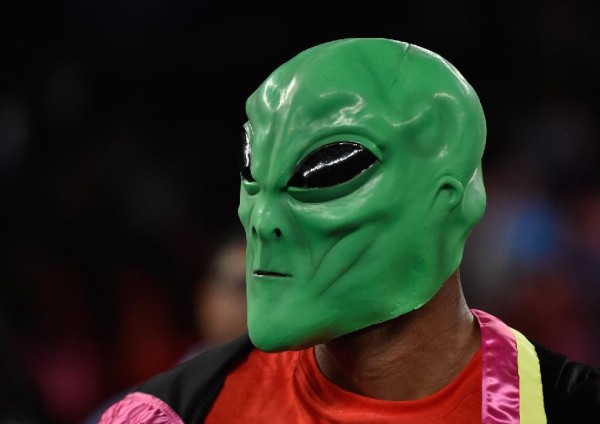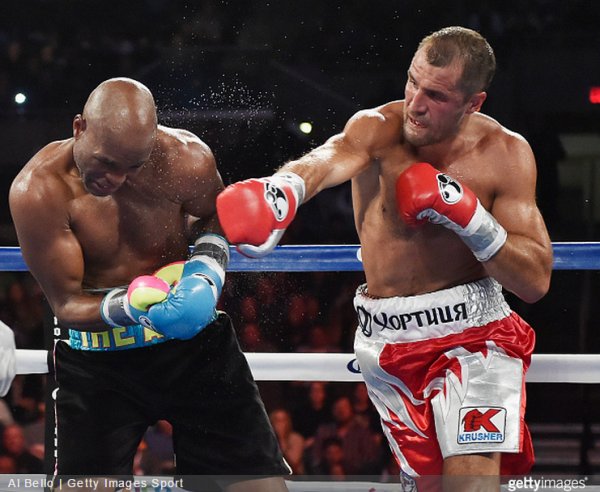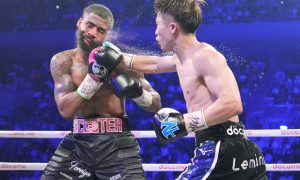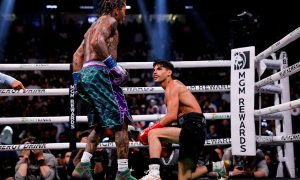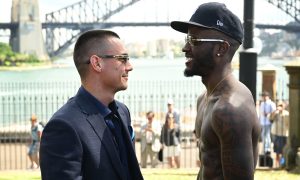Last night, it once again became awfully clear that nature continues to be the undisputed champion of the world.
Bernard Hopkins, believing in his technical abilities, felt he could snatch the title for at least until his 50th year.
But, like the right hand that sent him down in the first round of their unification fight and like the several more that came his way before losing a unanimous decision, nature kept the title from him in dominant fashion.
Sergey Kovalev dominated Hopkins for 12 rounds, but didn’t do it merely relying on his strength as the younger and stronger fighter.
Instead, Kovalev beat Hopkins at his own game.
“He fought a great technical fight. He used his reach and he used his distance. I know that was the key in this fight,” said Hopkins after the fight.
Kovalev out jabbed and outpointed Hopkins. He controlled the fight with a jab to the body and a steady pace of perfectly timed combinations.
Anytime Hopkins felt like countering, Kovalev took a step back, kept his distance and made it nearly impossible for Hopkins to land.
Hopkins was clearly relying on the younger man’s recklessness, but Kovalev never got reckless.
For the plethora of boxing fans who chose Hopkins to win, it might have been shocking.
Why?
A Kovalev win should have been obvious! He was the stronger, younger, and hungrier of the two fighters.
Despite beating Hopkins in a manner most didn’t imagine–many thought it was going to be his strength and not his skill that would win him the fight–it should have been obvious that Kovalev would win.
Yet, as evinced by a poll of over 20 boxing writers, many felt Hopkins actually had a shot.
ESPN’s Dan Rafael had this to say before picking Hopkins to win by unanimous decision: “Hopkins has been in this exact position many times, and pulled an upset. I’ve learned my lesson. It’s a tough fight, but Hopkins’ ring intelligence, experience, and chin trump a Kovalev whose opponents have not been much to write home about.”
For Rafael and other observers, history had taught us that Hopkins had been in this situation and prevailed.
Indeed, he was the older underdog against Felix Trinidad, Antonio Tarver and Kelly Pavlik.
For those who picked Hopkins, these were the examples by which to choose a Hopkins win.
History, however, isn’t a scientific endeavor.
“Historical research does not endeavor to grasp the concrete phenomena as an instance of a universal rule,” says philosopher Hans-Georg Gadamer in Truth and Method.
“Its ideal is rather to understand the phenomenon itself in its unique and historical concreteness,” he continues.
Our study of the past isn’t a science from which we can find universal and practical truths. We can learn from history, but only inasmuch as we take into consideration that everything that happens is unique.
Indeed, last night’s fight was unique.
To compare Kovalev to Pavlik, as some did, was a big mistake. To compare the Hopkins now to the Hopkins from 10 years ago is another mistake.
In fact, the list goes on in how different this fight was than any previous Hopkins or Kovalev fight.
There was no clear reason to pick Hopkins because a man of his age had never taken on a man like Kovalev, who was 20 years younger and almost 20 pounds heavier than the division Hopkins used to rule.
Yet I, as many others, chose him to win.
Perhaps we were merely sucked into another good underdog story.
But this was not merely the story of an underdog. It was the story of the ultimate underdog—of man vs. the abyss that threatens his existence.
Hopkins was the sliver of hope that we can actually, for at least a little while, beat nature.
In that story, however, we always lose.
But we like existential heroes, don’t we? I, despite hoping to see a win, was content with seeing him win on his feet.
In my write-up of the fight, I made it clear that Hopkins, for me, is still an “Alien.”
Others have taken the metaphor to heart, using the loss to remind us that he is still human.
Of course, who the hell thought otherwise?
What makes him an “Alien” is not being otherworldly. It is rather in the way he gracefully took more punishment in the 12th round than in any round of his entire career against the most dangerous puncher in his division–at 49 years old.
Who does that?
All photos by Al Bello/Getty Images





